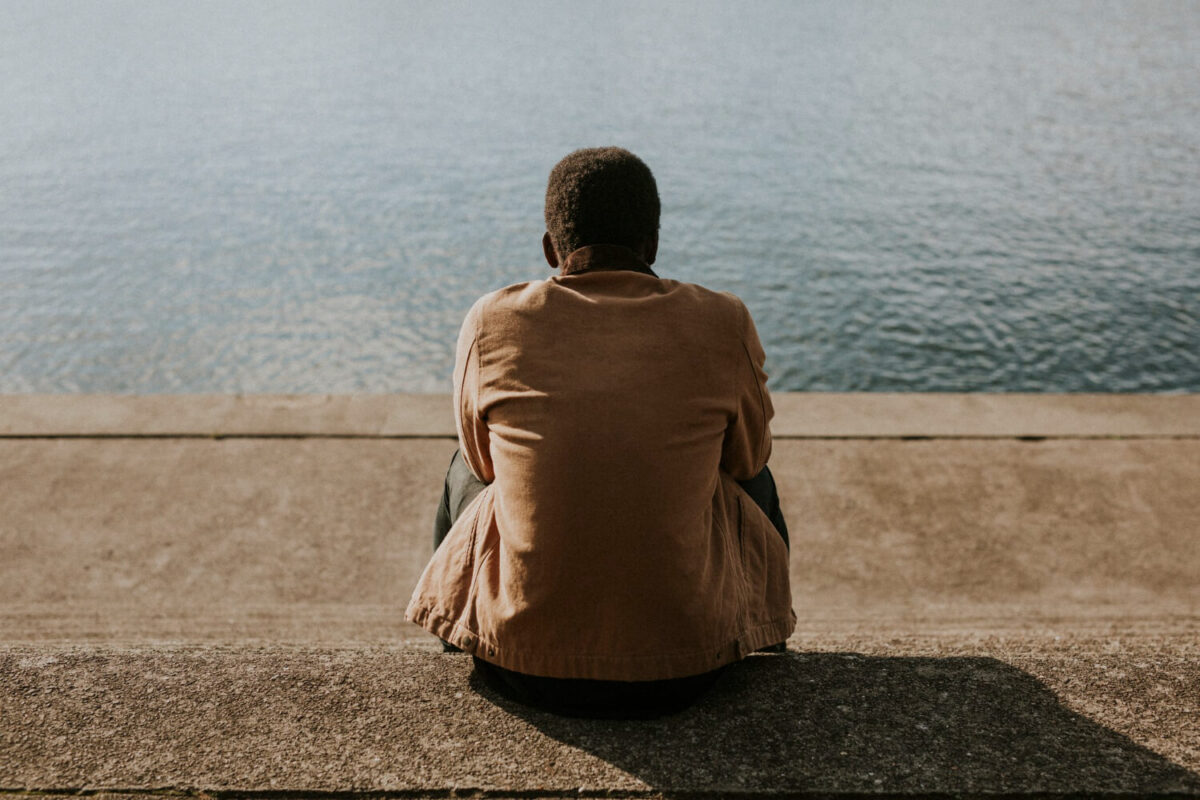Deciding to pursue substance abuse treatment is a significant turning point in life’s narrative, not just for the person battling addiction but also for those entwined in their world. The recovery road is often akin to a tumultuous voyage, with ups and downs that can leave relationships fraught, or sometimes even broken. Post-treatment, the reassembling of these relational shards is pivotal, not only for the individual’s well-being but for the collective healing of those who stood by their side, weathering the storm.
In this extensive guide, we’ll explore the various dimensions of rebuilding relationships after substance abuse treatment, offering insights and practical advice that can help families, friends, and recovering addicts tread the path of reconciliation and renewal.
Understanding the Impact of Addiction on Relationships
Before jumping into the rafters of reconstruction, it’s crucial to map the landscape of destruction that addiction often leaves in its wake. Substance abuse doesn’t just affect individuals; it ripples through their network of relationships with seismic force. It might lead to betrayals, loss of trust, financial strain, emotional distress, and in the most severe cases, legal and health crises.
For family members and friends, watching a loved one spiral into addiction is a heartbreaking experience. The combination of fear, helplessness, and sometimes resentment can change the dynamic from one of love and support to one fraught with strain. Equally, the individual battling addiction may feel isolated, misunderstood, and further propelled into a solitary, destructive cycle of substance use.
Understanding these dynamics is not to point fingers but to foster empathy; recognizing that both the loved one and the one in substance abuse treatment need to heal is the initial step toward a collective approach to rebuilding relationships.
The Journey of Substance Abuse Treatment: An Overview
The whoosh of the rehabilitation process—be it inpatient or outpatient—culminates in the return to daily life, where the real work of recovery commences. This isn’t just about abstaining from substances; it involves a radical shift in lifestyle, often including changes in environment, friend circles, and daily routines. The reintegration post-treatment can be likened to an astronaut’s re-entry into Earth’s atmosphere, fraught with challenges and the need for an unerring, gentle landing.
For the person in recovery, maintaining sobriety is the immediate objective, typically accompanied by therapy, support groups, and other modalities of continued care. Equally pivotal is the process of rediscovering life without substances and redefining the self within the framework of sobriety.
For families and friends, this phase involves a willingness to relearn how to support the recovering individual without enabling their addiction. It demands patience, education on substance abuse and mental health, and often counseling to address the residual trauma and to reinforce healthier communication and relational patterns.
Building the Post-Rehabilitation ‘Toolbox’ for Relationships
Stepping out of a rehabilitation program, a recovering individual needs an arsenal at their disposal, not just for resisting triggers but also for nurturing relationships back to health. This ‘toolbox’ comprises both tangible resources and intangible capabilities that can bolster the foundations of post-treatment relationships.
Tangible Resources
- Aftercare Plan: A detailed aftercare program, often prescribed by substance abuse treatment professionals, is a lifeline post-rehabilitation. Regular therapy sessions, support group meetings, and sometimes medications, ensure sustained support during the early, vulnerable phase of recovery.
- Structured Living: Transitioning to a sober living environment can provide a structured and supportive space for those in the early stages of recovery.
- Financial Stabilization: Addiction, often crippling financially, can be mitigated by developing sound budgeting and economic stability plans.
Intangible Capabilities
- Self-Awareness and Boundaries: Learning to recognize personal triggers and set appropriate boundaries are indispensable skills for the individual in recovery.
- Empathy and Understanding: Cultivating empathy toward the struggles of the recovering individual and the courage to open channels of understanding can be empowering for the support team.
- Forgiveness and Patience: The works of forgiveness—both for self and for the person in recovery—and practicing patience can dissipate the clouds of guilt and foster optimistic horizons.
These tangible resources and intangible capabilities together become the bedrock upon which the edifice of rehabilitated relationships can stand strong.

Addressing the Needs of the Recovering Individual
Substance abuse treatment is a multifaceted process with needs that vary from person to person. However, there are some common requisites that thread through the tapestry of healing.
Stability and Routine
Consistent routine and a stable living environment are foundational to recovery. Friends and family must understand these primary needs and offer the support necessary to maintain them.
Communication and Honesty
Open lines of communication, underpinned by honesty, are pivotal. The recovering individual must feel safe to express their struggles and victories, without fear of judgment.
Emotional Support
The emotional rollercoaster that accompanies recovery necessitates a supportive network that can provide strength and solace.
Continued Personal Development
Post-treatment life should not stagnate; continued personal development and growth are key to maintaining a positive trajectory in recovery.
The Role of Family Therapy in Rebuilding Relationships
Family therapy is an instrumental cog in the machinery of relationship repair post-treatment. It provides a safe environment for all involved to express their emotions, air grievances, and work through the collateral damage of substance abuse.
Through family therapy, dynamics can shift from confrontation to joint problem-solving, from siloed suffering to shared understanding. It equips families with the language to support and, in turn, accept support, thereby bridging the chasms that addiction can carve between loved ones.
Developing Healthy Communication
The seeds of recovery and redeemed relationships are sown in the soil of healthy communication. Learning to converse with empathy, to listen without judgment, and to express needs and feelings respectfully, can transform the relational terrain.
The ABCs of Communication
- Assertive: Speaking with clarity, honesty, and respect for oneself and others
- Boundary-Oriented: Being mindful of personal boundaries and honoring the boundaries of others
- Constructive: Engaging in dialogue that is solution-focused and not accusatory
Techniques for Effective Communication
- Active Listening: Devoting full attention to the speaker, showing understanding, and reflecting back the message
- “I” Statements: Articulating personal needs or feelings without ascribing blame
- Nonverbal Cues: Paying attention to body language and tone can convey as much, if not more, than words
Incorporating these techniques can nurture an environment where mutual understanding prevails, laying the groundwork for restored trust and affection.
Rebuilding Trust and Rekindling Relationships
Trust is often the first casualty of addiction and the last to be rehabilitated. Its rebuilding is a process that necessitates time, effort, and consistency on the part of the recovering individual and their support system.
Consistency is Key
Remaining true to commitments, no matter how minor, can be a signpost along the road to regained trust. Small, steady steps affirm the amends made by the recovering individual and provide assurance to the other parties.
Transparency and Responsiveness
Openness about challenges and maintaining responsiveness to the needs of others highlight a commitment to the relationship’s restoration.
Practicing Patience and Understanding
Both parties need to practice patience and understand that trust is a delicate flower, sometimes shy of the spotlight. Nurturing it with both tender care and the light of unwavering resolve can bloom into restored faith in the relationship.
Collective Healing Through Support Groups and Workshops
Support groups are not just for individuals; they can also serve as a platform for collective healing. Engaging in family support groups, workshops, or seminars can equip all parties with tools, insights, and solace as they navigate the recovery landscape.
The power of the group lies in its kinship—a shared experience that can lead to shared healing. Witnessing the recovery journeys of others can put one’s own struggles in perspective and rekindle hope.
Setting – and Celebrating – Relationship Milestones
Setting and celebrating relationship milestones is a way to mark the progress in the healing process. These can be as grand as a sober anniversary, or as modest as a heartfelt conversation. Acknowledging and commemorating these moments not only fortifies the relationship but also serves as an encouraging tally of the recovery’s success.
Navigating Setbacks and Downturns
In the volatile seas of recovery, setbacks and downturns are not uncommon. It’s critical for both the recovering individual and their support system to approach these incidents as learning opportunities rather than failures.
Understanding that setbacks are a part of the recovery process can alleviate the anxiety surrounding them. It’s a chance to reevaluate strategies, ask for additional support, and tighten the bonds of resilience within the relationship.
Understanding Relapse and Maintaining Relationships Through It
Relapse is often misconstrued as a termination point of recovery. However, understanding relapse as a part of the recovery continuum can mitigate the despair and shame it often elicits.
Recovering relationships need to be robust enough to weather a potential relapse, should it occur. This strength stems from knowledge, support, and the steadfast commitment to the underlying bond.
Balancing Independence with Relational Support
Personal independence is an indispensable facet of recovery, but it isn’t antithetical to relational support. Finding the equilibrium between self-sufficiency and interdependence can lead to relationships that thrive on mutual respect and empowerment.
The Legacy of Rebuilt Relationships
The culmination of the rebuilding process is not merely a return to the pre-addiction era but the forging of new, more mature, and resilient relationships. These bonds are not free of past strains, but they carry within them the wisdom and strength accrued through the recovery odyssey.
In many ways, the adversity of addiction can be the catalyst for relationship metamorphosis. It teaches us the futility of taking love and companionship for granted, the imperative of forgiveness, and the depth of human capacity for change.
Find Substance Abuse Treatment Today
Rebuilding relationships is a complex yet rewarding endeavor post-substance abuse treatment. It’s a testament to the elasticity of human connection, the unwavering yearning for belonging, and the redemptive potential of the human spirit.
As you chart your course toward reconciliation, remember that each relationship is a narrative in progress, and the chapter of recovery holds the promise of many forwarded pages. Through understanding, support, and a shared commitment to growth, you can rewrite the script in the tender ink of healed connections.
For those beginning this chapter, know that the path is neither straight nor easy, but its destination is well worth the effort. With dedication, education, and an unshakeable belief in the capacity for renewal, the relationships that have weathered the storm of addiction can emerge stronger, brimming with compassion, and invigorated by a newfound sense of unity.
To each individual and family engaged in this profound work of rebuilding, may your efforts be met with the bountiful harvest of restored relationships and the enduring warmth of familial love.
Let us at Drug Abuse and Addiction help you find the right rehab center today that has meaningful aftercare programs available. Give us a call at (888) 850-5161 or visit our website at www.drugabuseandaddiction.com to learn more.




